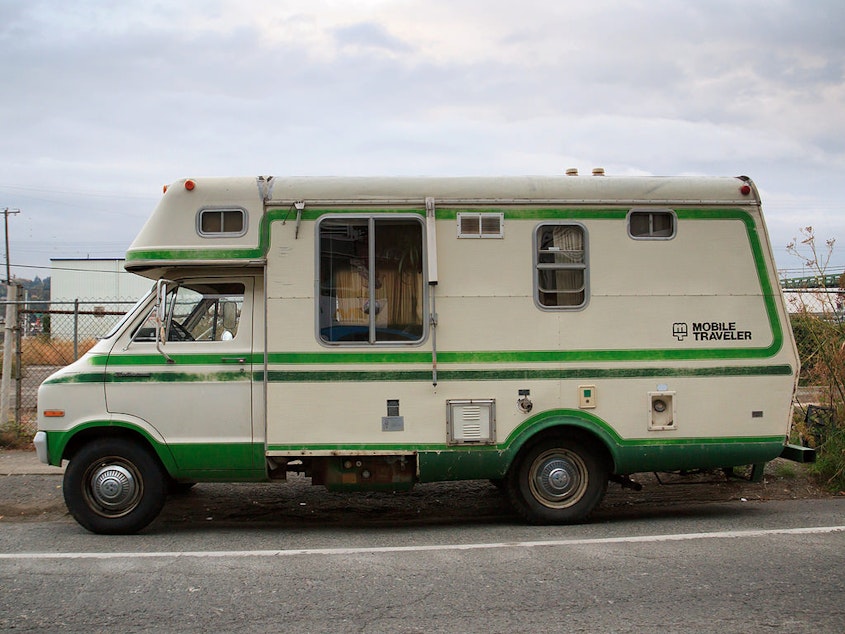Should homeless people living in cars get parking tickets?

Homeless people living in cars and RVs on Seattle streets may soon be exempt from some penalties for parking violations.
A new draft ordinance, unveiled by City Councilmember Mike O’Brien Thursday, aims to reduce ticketing and towing for vehicles that double as homes.
O'Brien said the measure is necessary because there are nearly 4,000 people living unsheltered on Seattle streets and an estimated 40 percent are living in their vehicles.
He said ticketing them doesn't solve the problem.
"Accumulating parking tickets, or towing their vehicle, has a very destabilizing effect. I don't want them to take their minimal amount of resources that they might have and have them paying parking fines," O’Brien said.
O'Brien said, to date, the city has not focused the attention or resources necessary on those living in their vehicles.
His draft ordinance would create a Vehicular Residence Program.
The idea is that homeless people living in cars and RVs would enroll in that program and be connected with services.
If they follow certain rules, like dumping trash at designated sites, they'd be exempt from parking penalties while they go through the process of getting into permanent housing.
An earlier draft of the legislation, leaked earlier in the week, raised concerns from neighborhoods and community groups.
But O'Brien said the legislation – still in the very early stages - would not change city parking regulations. He said rules governing where and how long vehicles can park would remain in place.
"All those rules would be in effect and the city could choose to enforce those where necessary. If we find there's an individual living in a vehicle and they're following the rules and guidelines set up, we want the flexibility to say let's not issue them a ticket or let's not force them to push their vehicle down the block if they're working towards getting into permanent housing."
Scott Lindsay, former public safety advisor to the Seattle mayor and a candidate for city attorney, said the most recent draft is still headed in the wrong direction.
Lindsay said the proposal is a band aid approach and could compromise safety for vehicle residents and surrounding neighborhoods.
"There are other ways that we can accomplish these same goals by providing some back-end forgiveness… But, up front, saying that we will not enforce the laws of the city of Seattle for a certain category of vehicle, I think that's the wrong approach," Lindsay said.
Lindsay also takes issue with the idea of setting up more safe lots around Seattle.
The draft legislation calls for the city to identify 30 to 50 safe lots where up to 500 vehicles could be parked.
Previous safe lots set up by the city failed, mainly due to unexpectedly high costs.
Lindsay helped create that pilot project. He said being able to serve vehicle residents properly is very expensive.
“By delivering the services that are required to operate and live in vehicles in a healthy and safe way we needed to spend exorbitant amounts of money,” Lindsay said.
Lindsay said security, trash, water, electricity and sanitation services were all required to run the lots properly.
O’Brien said his proposal aims to set up more cost effective lots with fewer vehicles parked in each. He also said having more lots spread out geographically would mean a smaller impact on neighborhoods.
“Success I’d measure for this program in the short term is going to be: Are we getting people engaged in a program, and are we stabilizing people and stabilizing communities. So what I hope to hear from businesses and residents as we move forward is, ‘Hey, it continues to be a challenge, there’s more people who are homeless in my neighborhood than I’d care to see… but the problem is being managed better.’”
O'Brien said there's still a lot of work to be done before the legislation moves forward. He hopes to work with several city departments to flesh out details – like cost and timeline – before introducing the ordinance to the council.
Both O’Brien and Lindsay agree that greater outreach and access to services is needed for homeless people living in their vehicles in Seattle.
